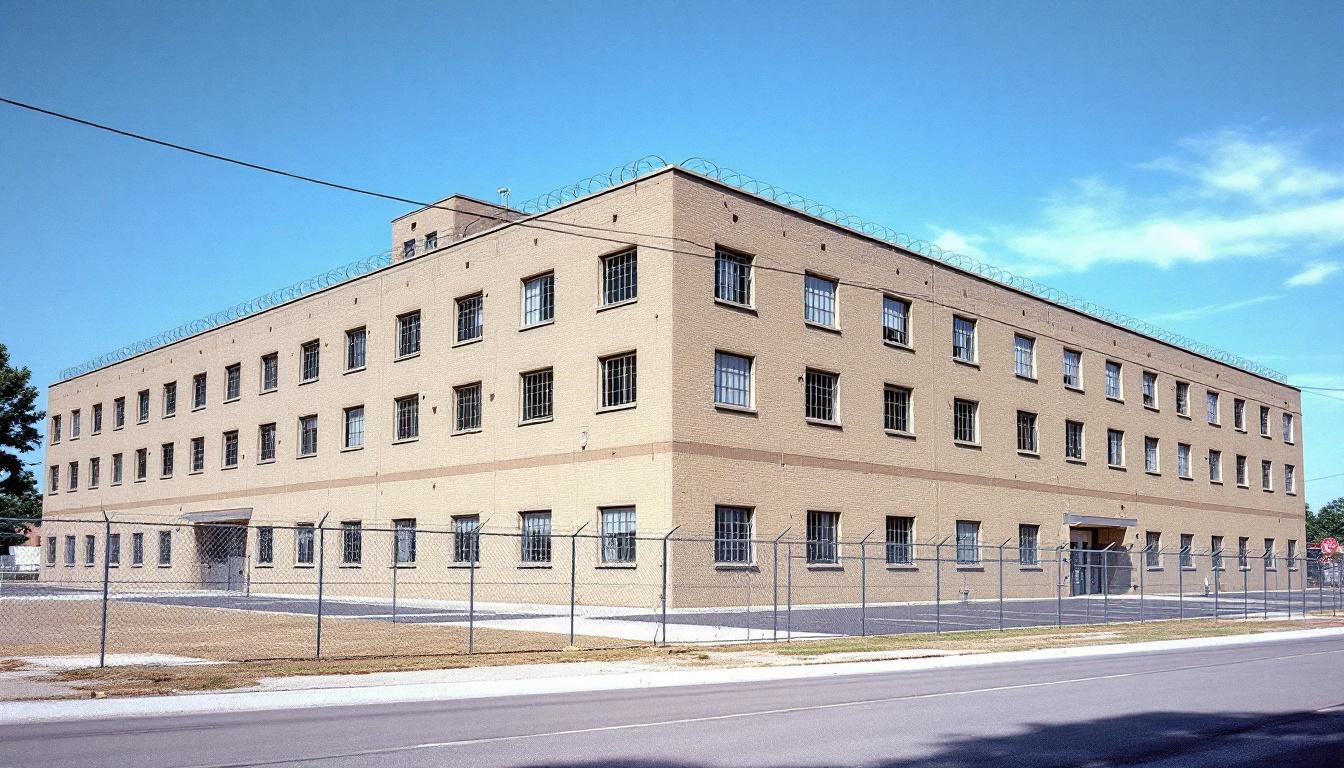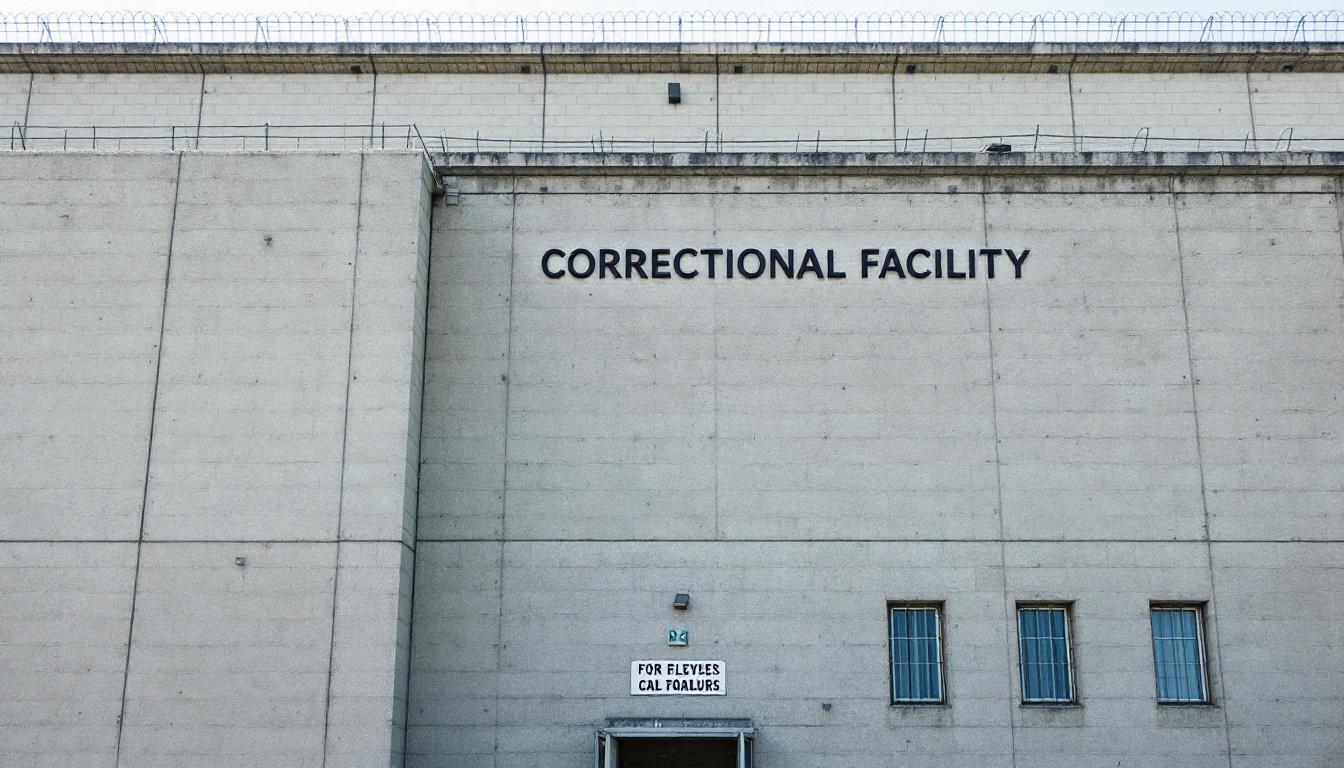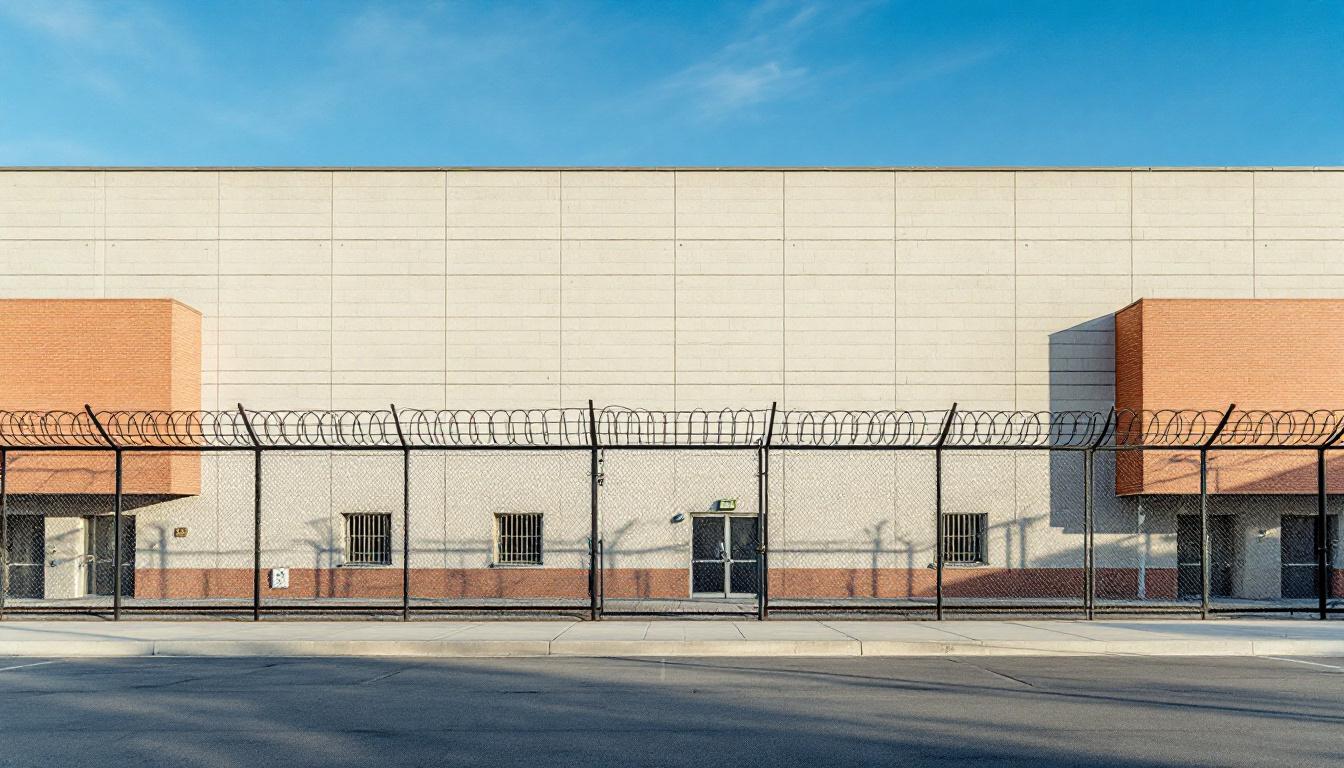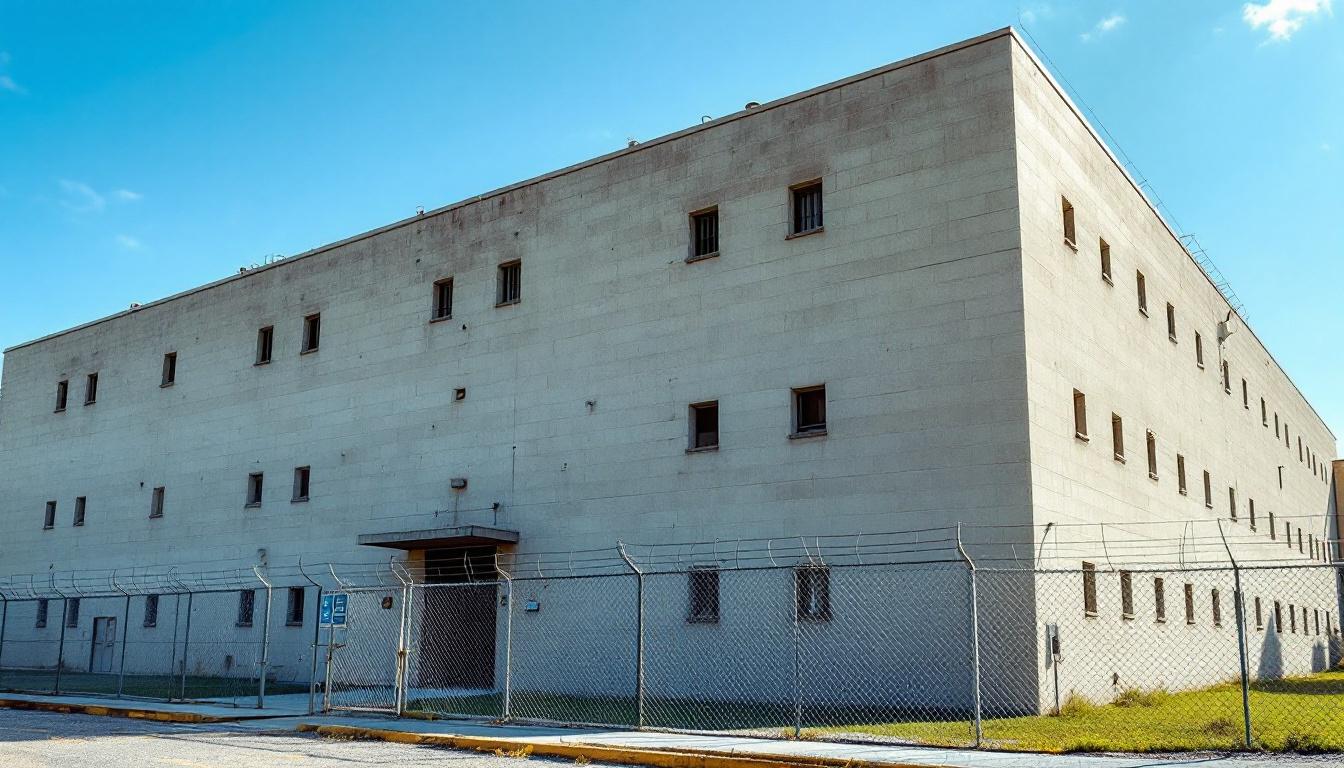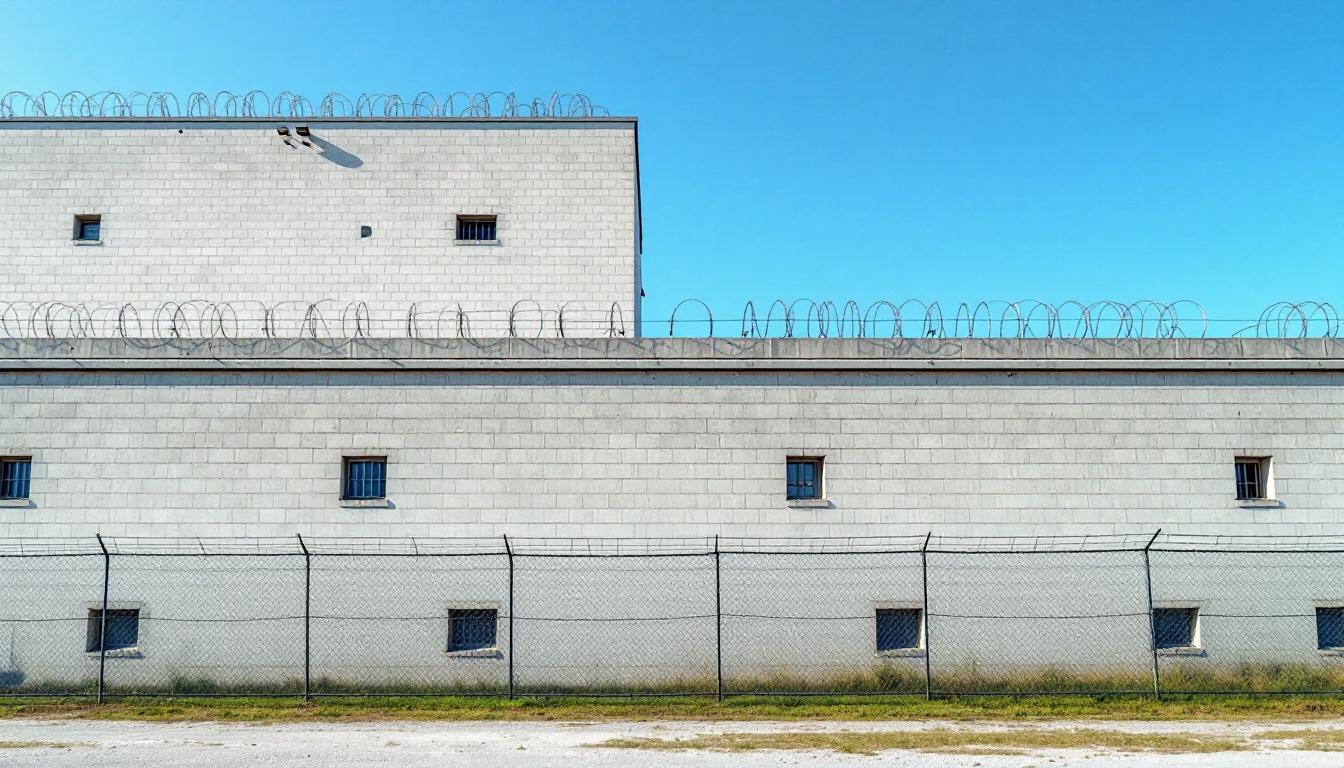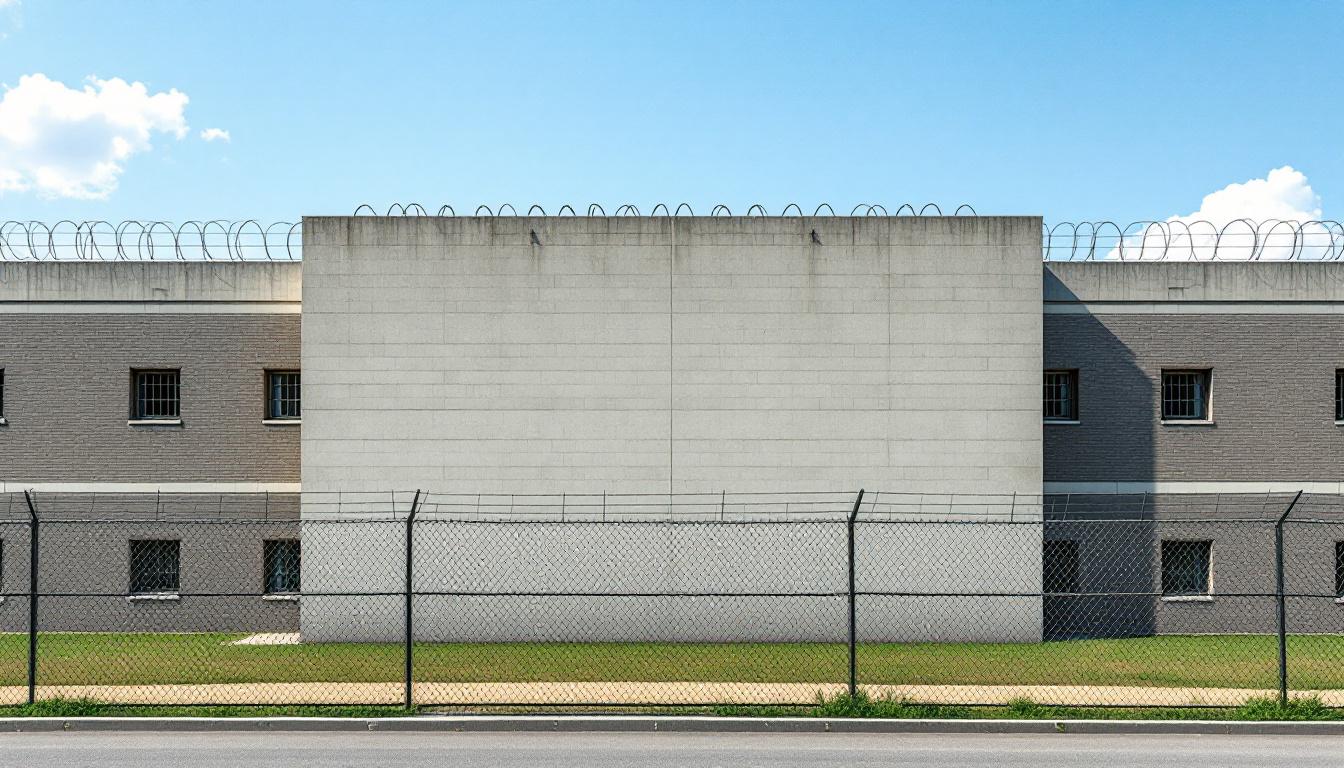
Quick Navigation
How to contact an inmate at Corrections Corporation of America
This comprehensive guide will walk you through how to connect with an inmate at Corrections Corporation of America. Follow the steps below to find an inmate and send letters and photos:
- Search for the inmate using our search tool below
- Create your account or log in to Penmate
- Write your message (up to 6,000 characters)
- Send instantly - inmates receive printed copies daily
Find an Inmate
Search for an inmate to start communicating today
Tip: You can search by first name, last name, or inmate ID number
To contact a person at Corrections Corporation of America start by searching for the person on the official facility website. Perform a search by following these steps:
- Step 1: Enter their first name and last name into the search form and click "Search"
- Step 2: Locate their inmate record
- Step 3: Write down their Inmate ID and any housing information provided
Important! Be sure to enter the person's full name. Nicknames should not be used.
How to Send Messages to Inmates

You can use your phone or computer to send emails, letters, and photos to an inmate. Messages are sent electronically to inmate tablets or kiosks at the facility. If you would like to send a message, start by searching for an inmate at Corrections Corporation of America.
Sending Photos and Postcards

A great way to send love and support to a loved one at Corrections Corporation of America is to send photos and postcards. It only takes a few minutes to send photos from your phone and it makes a huge difference. You can also mail postcards with words of support and inspiration, or design your own postcard for special moments like birthdays and holidays.
Important! Be sure not to send any explicit photos or they may not be approved by the facility. You can also use a photo printing app like Penmate to make sure your photos are printed at the correct size (4x6 or 3x5) and are mailed according to the rules and regulations of Corrections Corporation of America.
Frequently asked questions about Corrections Corporation of America
-
How long does it take to deliver a message?
If you're sending an email message your letter is usually delivered within 24-48 hours. For messages sent via mail you should expect delivery within 3-7 days. All messages will need be approved by Corrections Corporation of America.
-
How much does it cost to send a message to Corrections Corporation of America?
You can send a message free using your phone or mail a message via USPS for the price of a $0.60 stamp and envelope. You can also purchase credits or e-stamps from services starting at $1.99.
-
What services can I use to contact an inmate at Corrections Corporation of America?
Penmate
You can use Penmate to send letters and photos to an inmate from your phone. It's an easy way to stay in touch during your loved one's incarceration. Use the inmate locator to find an inmate's location and contact information, then you can send messages within a few minutes.
Securus messaging
Securus may be another option for communicating with an inmate at Corrections Corporation of America. You can create a friends and family account and purchase credits to send messages. All messages will be reviewed and must be approved by the facility.
JPay
Some county jails and state prisons may support sending messages with JPay. You must register an account with the system, find your loved one, and purchase stamps to send messages. For some locations you can also attach photos.
Smart Jail Mail
You may also check if Smart Jail Mail is available at Corrections Corporation of America. Smart Jail Mail is operated by Smart Communications and has contracted with some state and county jails. After purchasing credits, your messages and photos are sent to the facility, printed out, and then handed out to your loved one.
-
What is the mailing address of Corrections Corporation of America?
Mailing address:
Corrections Corporation of America
100 Hwy Terrace
Leavenworth, KS 66048
Phone: (913) 727-3246Business hours:
- Monday: Open 24 hours
- Tuesday: Open 24 hours
- Wednesday: Open 24 hours
- Thursday: Open 24 hours
- Friday: Open 24 hours
- Saturday: Open 24 hours
- Sunday: Open 24 hours
-
What are the visiting hours at Corrections Corporation of America?
Visiting hours at Corrections Corporation of America vary by housing unit and security level. Generally, visits are scheduled on weekends and holidays, with some facilities offering weekday visits. Contact the facility directly at (913) 727-3246 or check their website for the current visiting schedule. Visits typically last 30-60 minutes and must be scheduled in advance.
-
What items are prohibited when sending mail to Corrections Corporation of America?
Prohibited items typically include: cash, personal checks, stamps, stickers, glitter, glue, tape, staples, paperclips, polaroid photos, musical or blank greeting cards, hardcover books, magazines with staples, and any items containing metal or electronics. Only send letters on plain white paper with blue or black ink. Photos must be printed on regular photo paper (no Polaroids). Always check with Corrections Corporation of America for their specific mail policies.
-
How do I send money to an inmate at Corrections Corporation of America?
You can send money to an inmate at Corrections Corporation of America through several methods: 1) Online using JPay, Access Corrections, or the facility's approved vendor, 2) Money orders mailed directly to the facility with the inmate's name and ID number, 3) Kiosks located in the facility lobby, or 4) Over the phone using a credit or debit card. Fees vary by method, typically ranging from $2.95 to $11.95 per transaction.
-
Can I schedule a video visit with an inmate at Corrections Corporation of America?
Many facilities now offer video visitation as an alternative to in-person visits. At Corrections Corporation of America, video visits may be available through services like Penmate, Securus Video Connect, GTL, or ICSolutions. Video visits typically cost $10-20 for 20-30 minutes and must be scheduled in advance. You'll need a computer or smartphone with a camera and reliable internet connection. Contact the facility for their specific video visitation policies and approved vendors.
-
What identification do I need to visit an inmate at Corrections Corporation of America?
All visitors must present valid government-issued photo identification such as a driver's license, state ID, passport, or military ID. Minors must be accompanied by a parent or legal guardian who can provide the minor's birth certificate. Some facilities require visitors to be on the inmate's approved visitation list, which may require a background check. Contact Corrections Corporation of America for specific ID requirements and visitor approval procedures.
-
How can I find out an inmate's release date?
To find an inmate's release date at Corrections Corporation of America, you can: 1) Use the online inmate search tool if available, 2) Call the facility's records department, 3) Contact the inmate's case manager or counselor, or 4) Have the inmate provide this information during a call or visit. For privacy reasons, some facilities only release this information to immediate family members.
Facility Overview
Contact Information
Corrections Corporation of America100 Hwy Terrace
Leavenworth, KS 66048
Phone: (913) 727-3246
Official Website

About Corrections Corporation of America
Serving the Wayne County area and surrounding southeast Georgia communities, this federal correctional institution provides essential rehabilitation services while maintaining strong connections to local support networks. Evidence-based programming typically forms the foundation of operations at FCI Jesup, GA, where comprehensive inmate services may include educational opportunities, vocational training, and substance abuse treatment designed to support successful community reintegration.
Located in the heart of Georgia's coastal plain region, this GA correctional facility generally operates multiple programs focused on skill development and personal growth. Inmates often have access to educational services that may range from basic literacy instruction to post-secondary coursework, while vocational programs typically prepare individuals for employment opportunities upon release. Mental health services and counseling programs are generally available to address various needs, and recreational activities often support overall wellness within the facility.
The correctional facility maintains its role within Georgia's broader correctional system by emphasizing evidence-based approaches to rehabilitation and community safety. Family support services may include visitation programs and communication resources that help maintain important relationships during incarceration. Through partnerships with local organizations and service providers in the Jesup area, the facility typically works to create pathways for successful transitions back into the community, supporting both individual growth and regional public safety goals.
Programs & Services
Personal growth and skill development form the foundation of rehabilitative services at FCI Jesup. The facility typically emphasizes building practical abilities and addressing individual needs through structured programming. Inmates may participate in various services designed to prepare them for successful community reintegration while addressing underlying challenges that contributed to their incarceration.
Educational services often include high school diploma programs for those seeking to complete their secondary education. Vocational training may provide hands-on experience in marketable trades, helping inmates develop technical skills valued by employers. These educational opportunities typically focus on both academic achievement and practical workforce preparation, giving participants tools they can use upon release.
Moreover, therapeutic and support services address personal wellness and behavioral change. Mental health counseling may offer individual and group sessions to help inmates work through psychological challenges and develop coping strategies. Faith-based services often provide spiritual guidance and community support for those seeking religious involvement. Additionally, conflict resolution training typically teaches communication and problem-solving techniques, while painting and decorating programs may offer creative outlets that build both artistic skills and self-confidence. These varied services work together to support comprehensive personal development during incarceration.
Daily Life & Visitation

The concrete housing units and controlled environment at FCI Jesup shape every aspect of an inmate's daily experience. Inmates currently follow structured schedules that begin with early morning counts and continue through work assignments, meals, and recreational periods. The facility typically maintains consistent routines that provide predictability, with inmates generally moving between designated areas according to established timeframes.
Living accommodations usually consist of shared cells or dormitory-style housing units, where inmates adapt to limited personal space and communal living arrangements. Meals are typically served in dining halls at scheduled times, with inmates often having brief periods to socialize during these gatherings. Moreover, the facility generally provides recreational opportunities that may include outdoor exercise areas, indoor fitness equipment, and organized activities that help inmates maintain physical health and social connections.
Programming schedules typically offer various educational and vocational opportunities, though availability may vary based on security level and individual circumstances. Inmates usually have access to library services and may participate in work assignments that often include maintenance, food service, or facility operations. Whereas daily routines provide structure, family connections remain important through visitation programs and communication options that typically include monitored phone calls and correspondence, helping inmates maintain relationships with loved ones during their incarceration.
Ready to Connect?
Start communicating with your loved one today
Search for an Inmate
